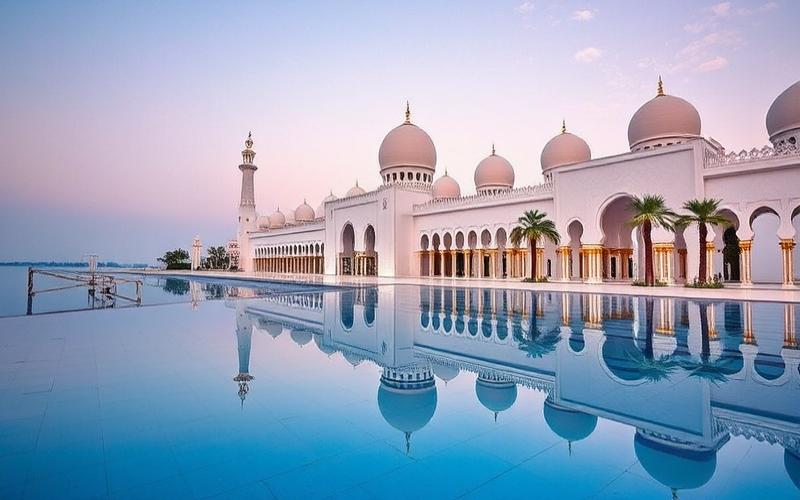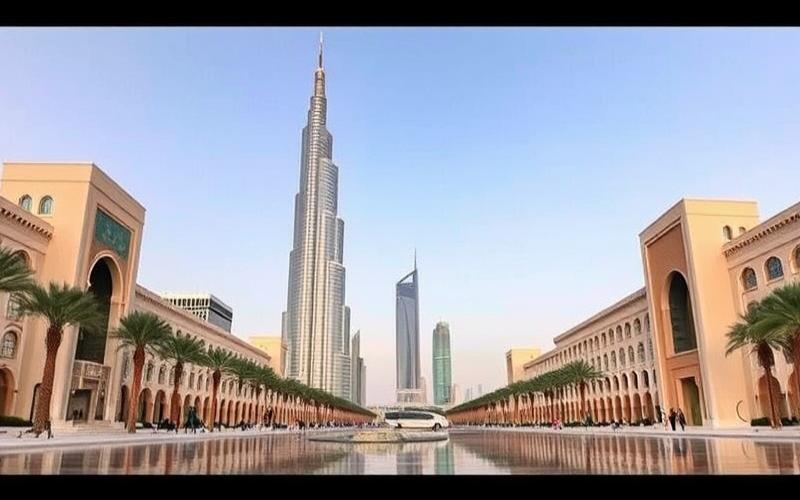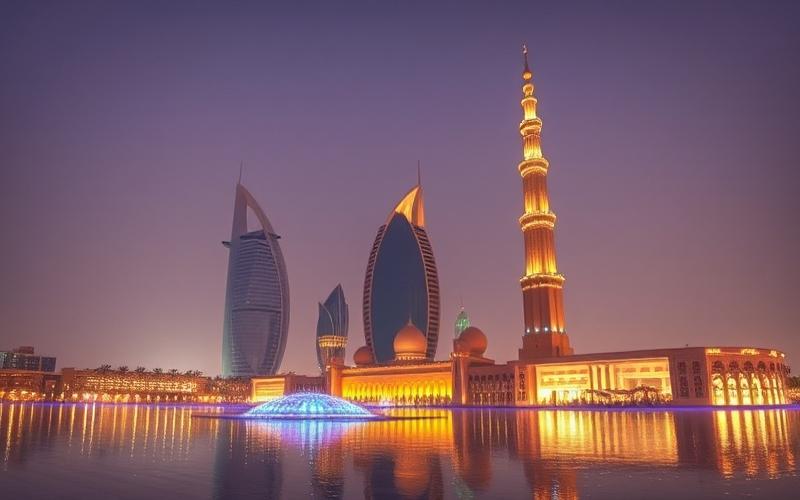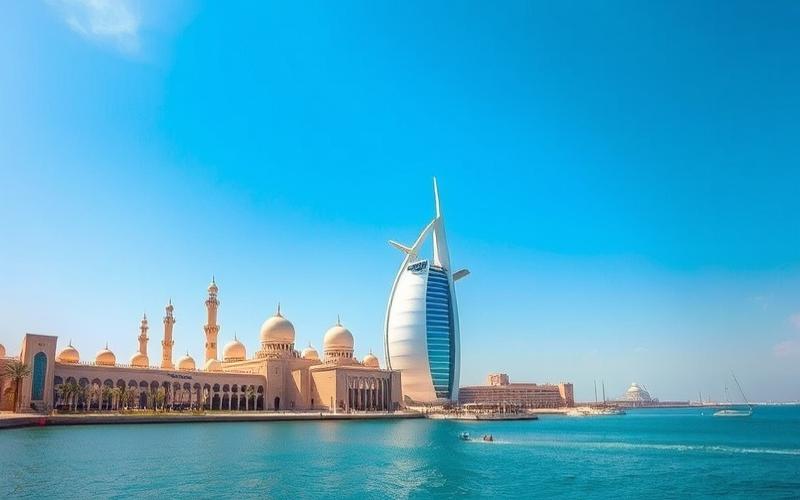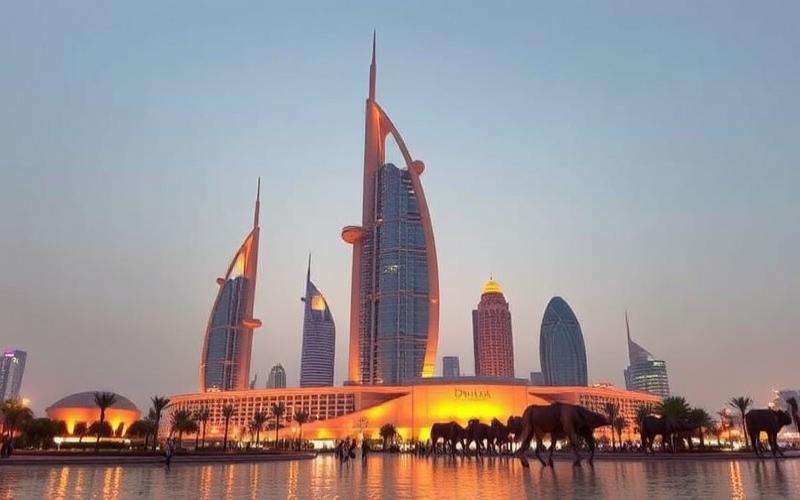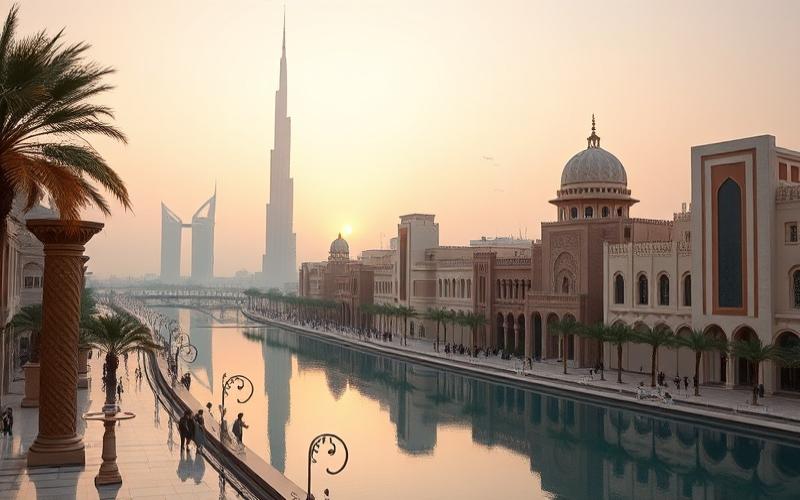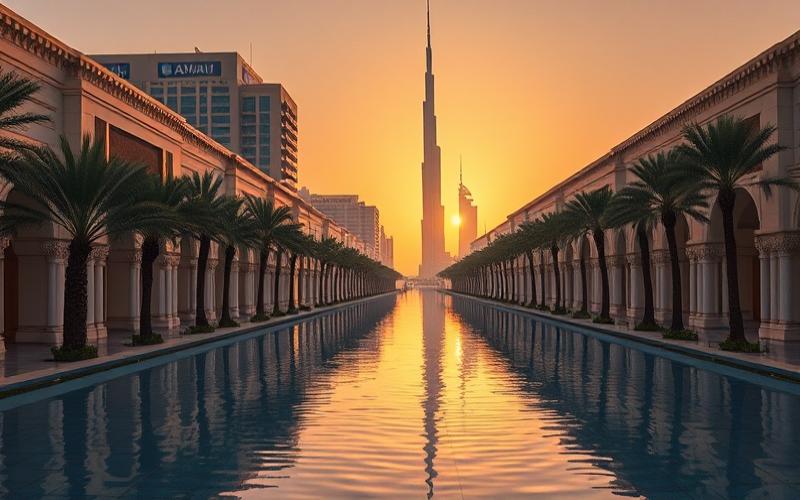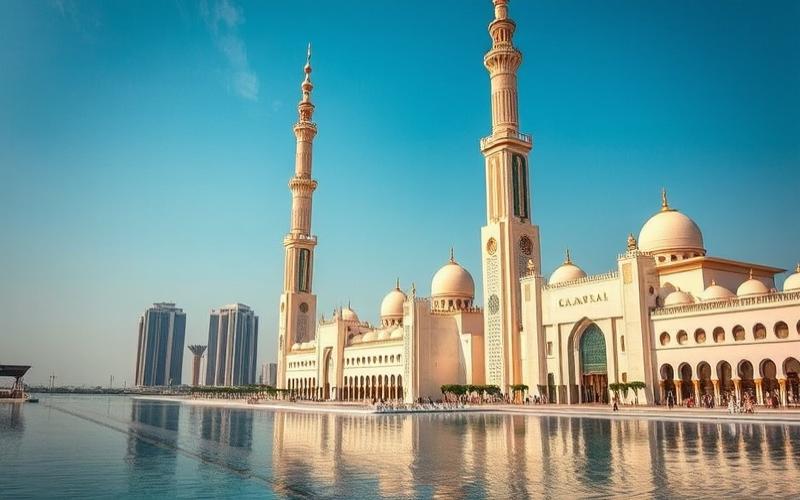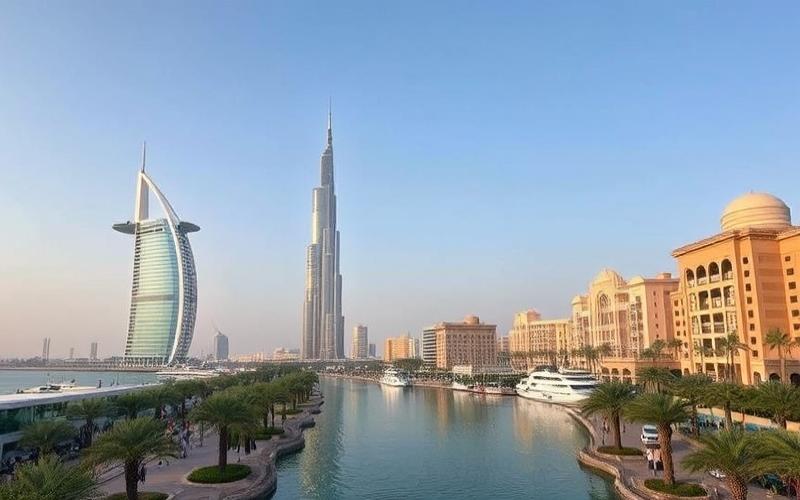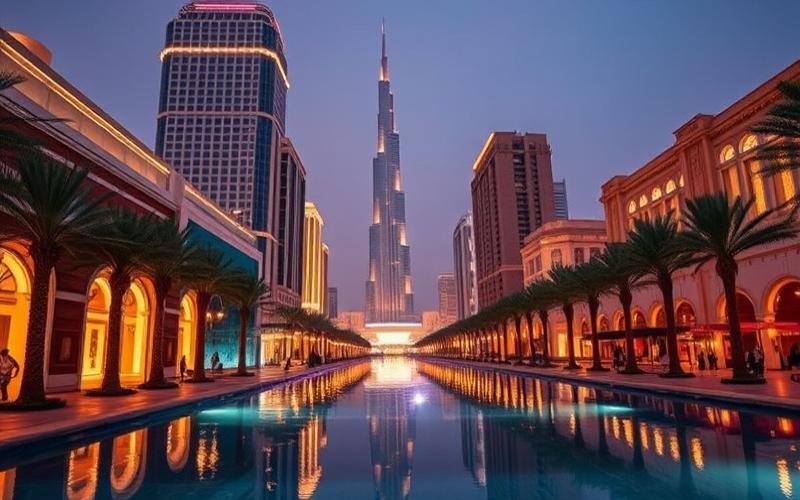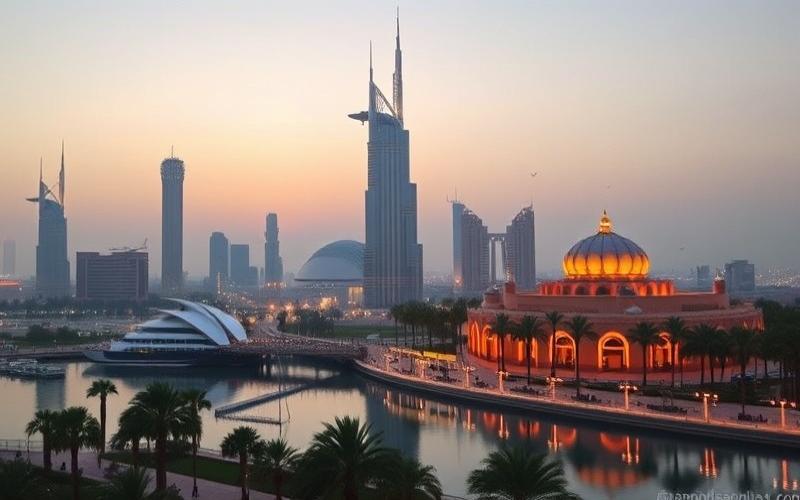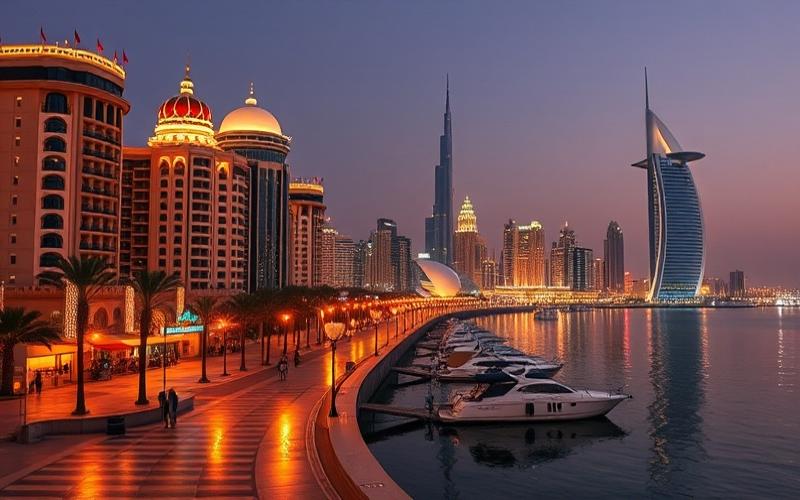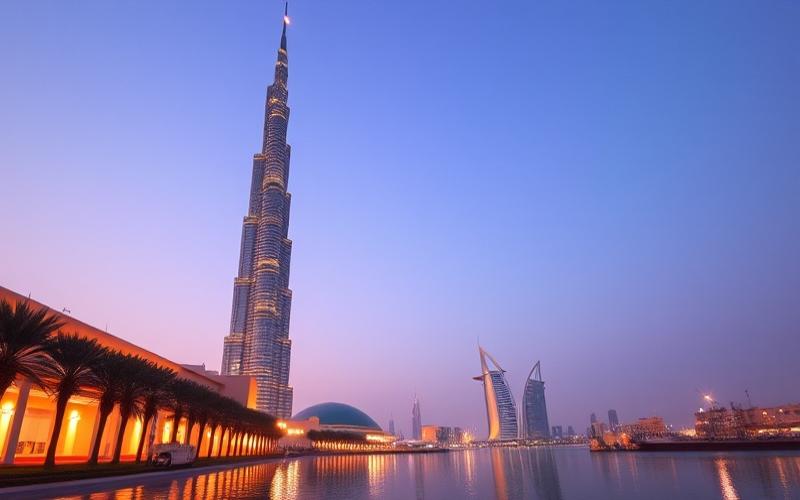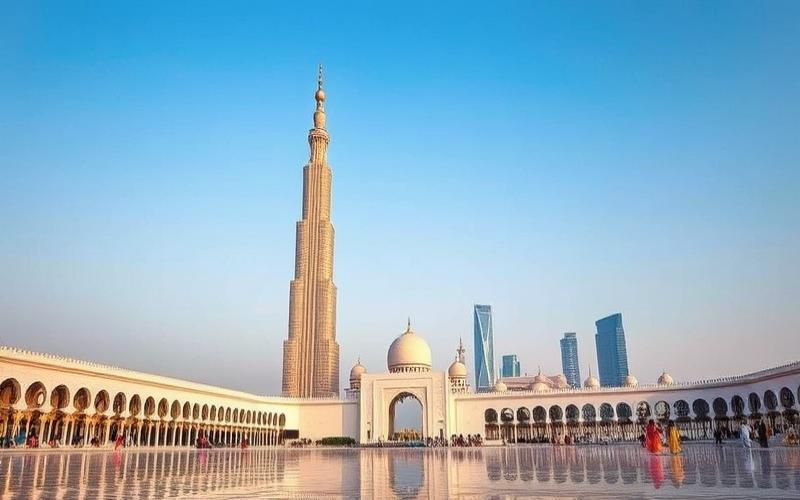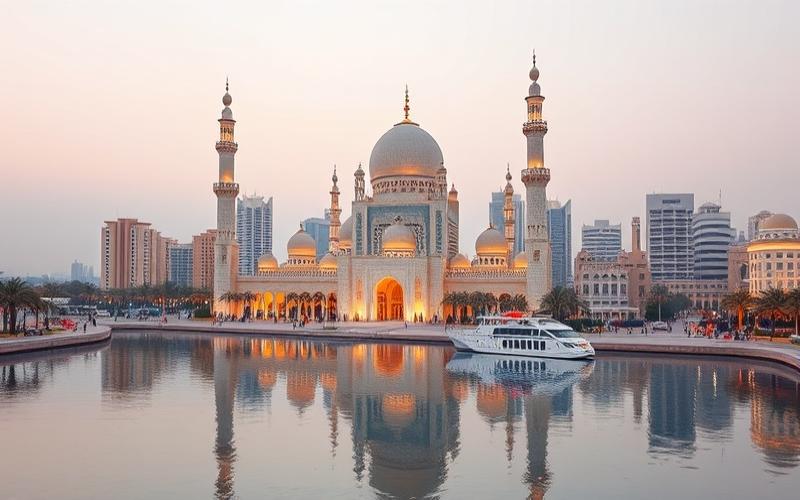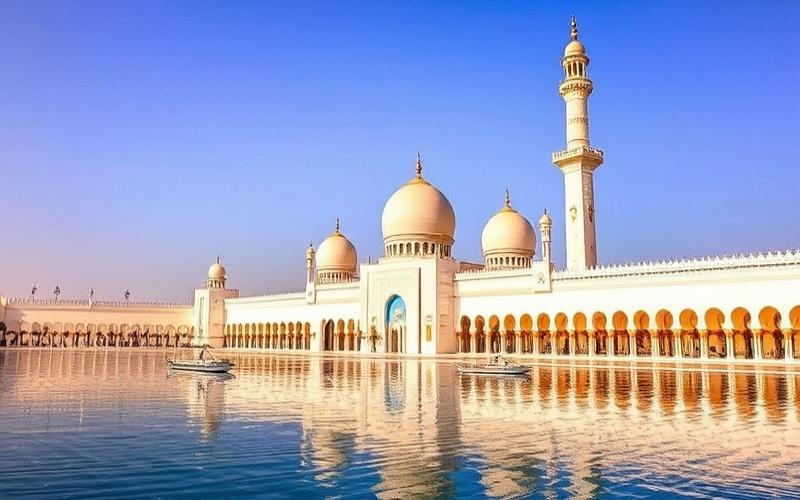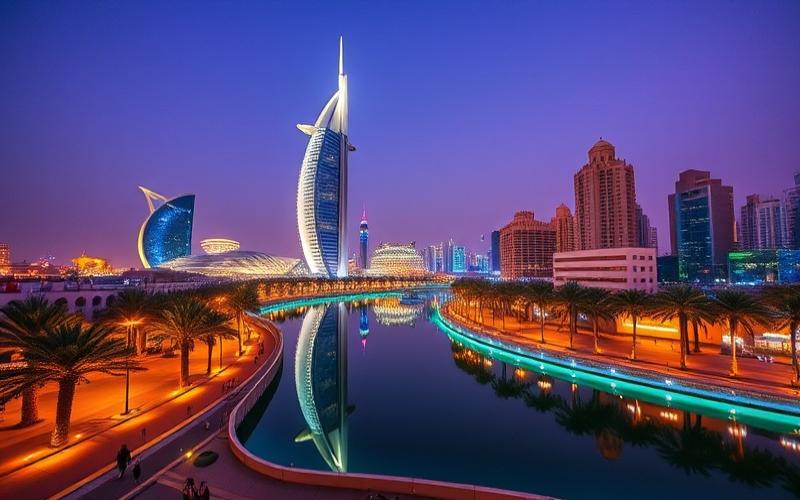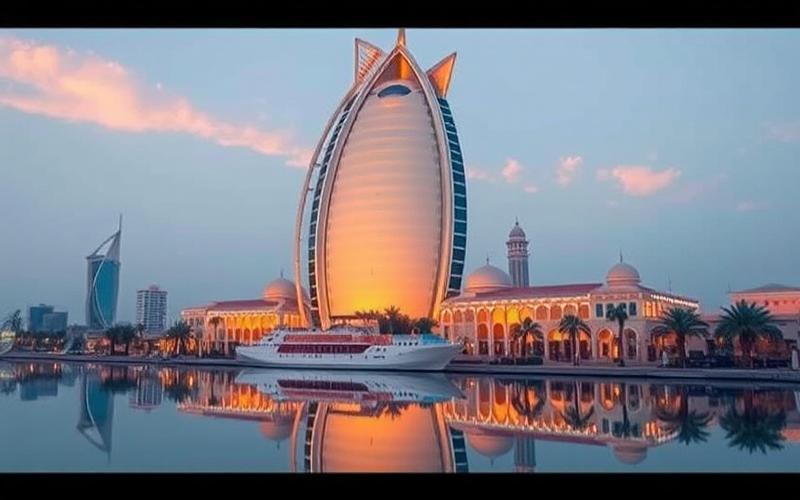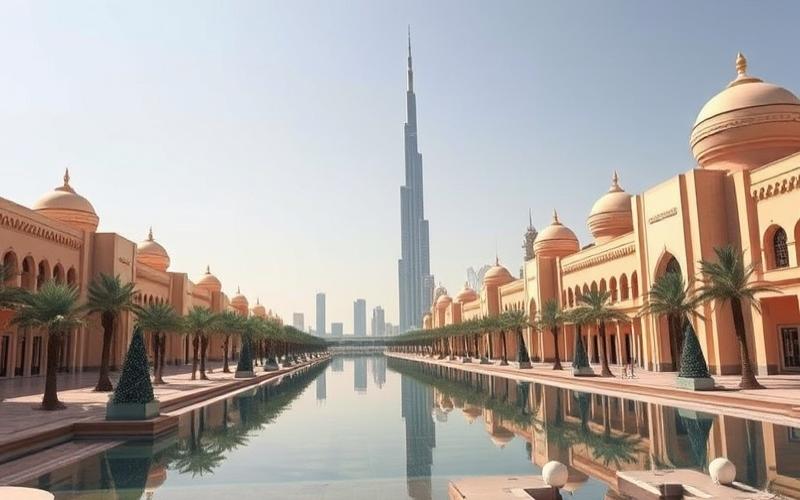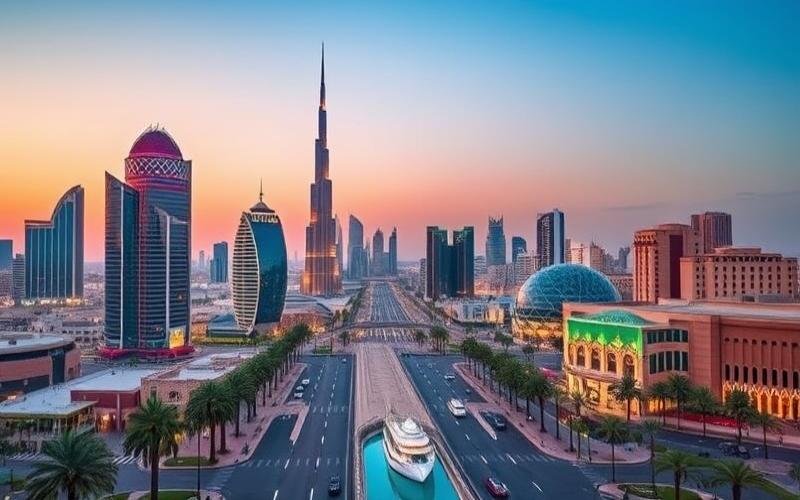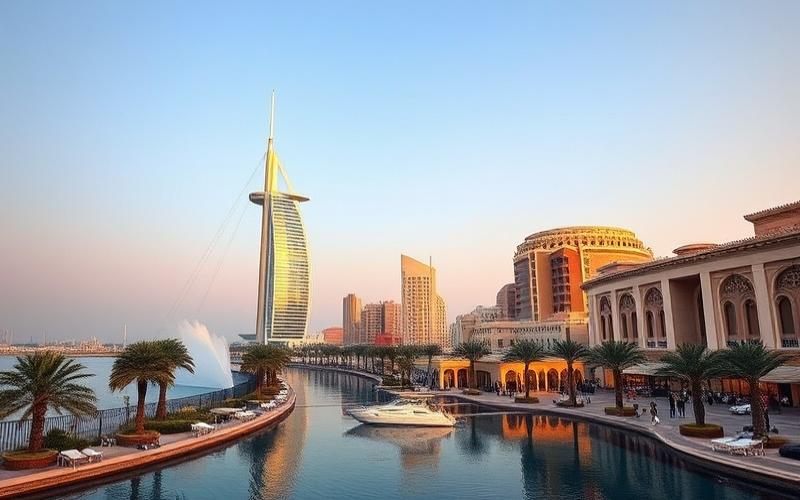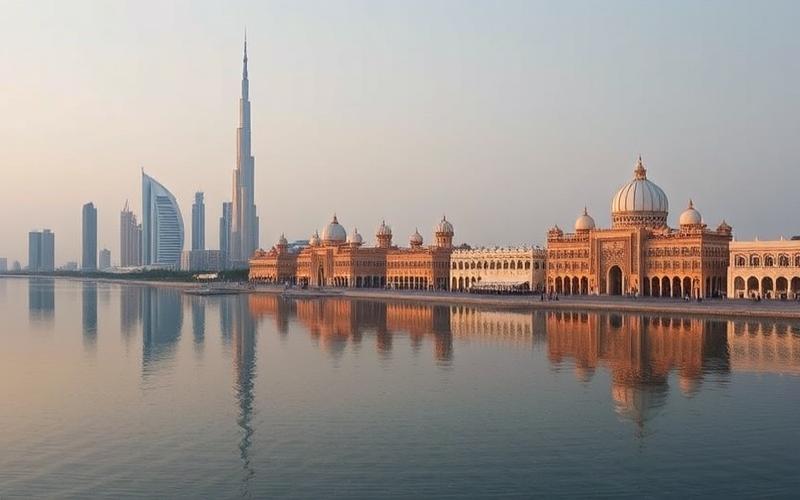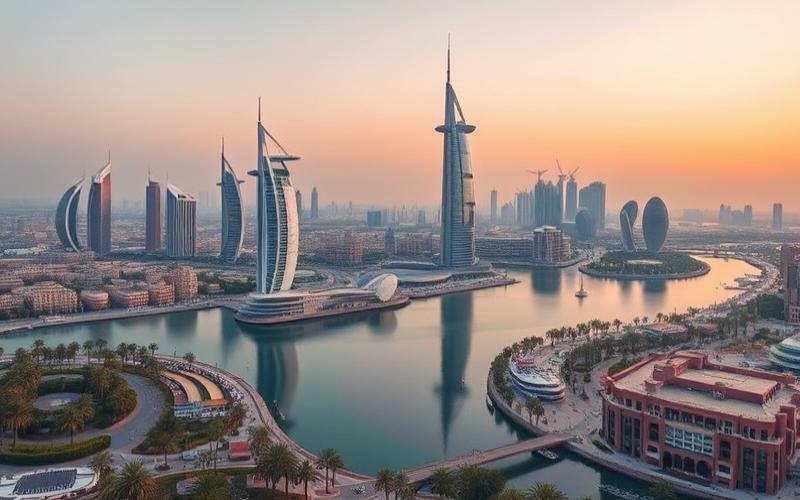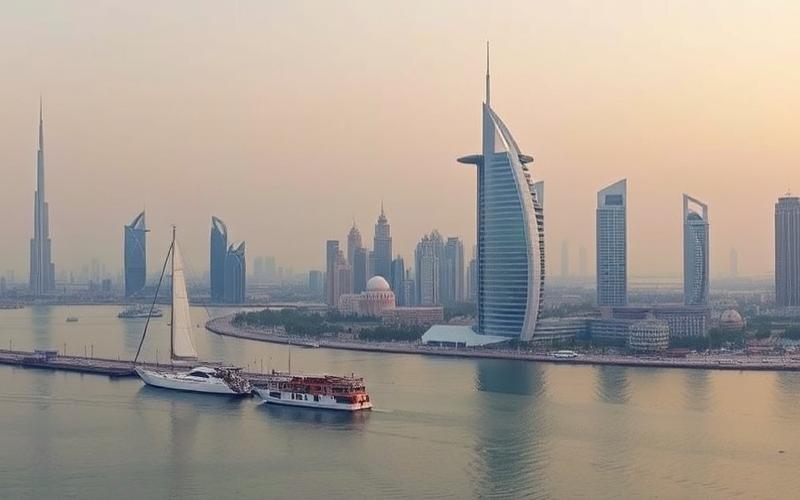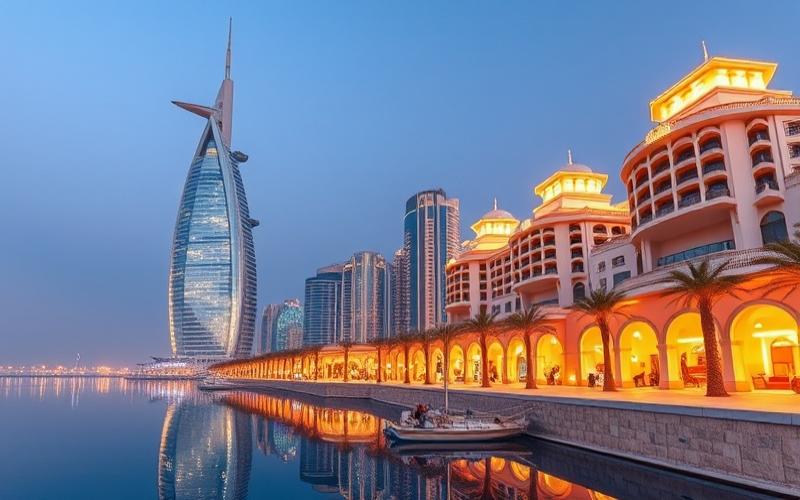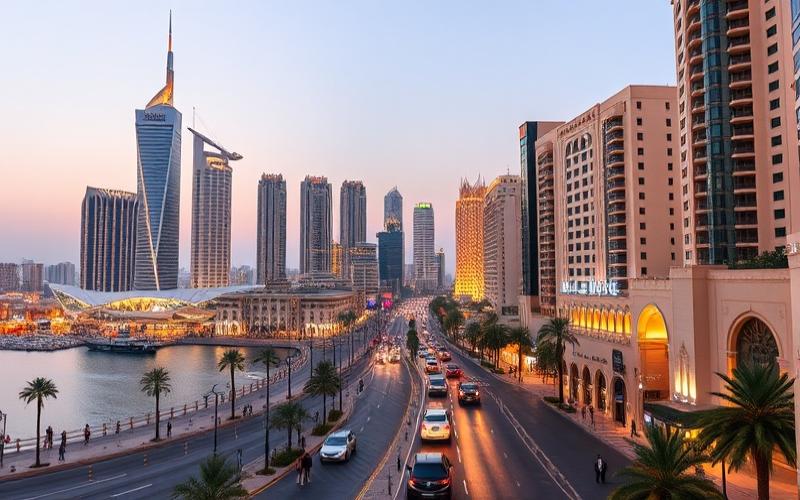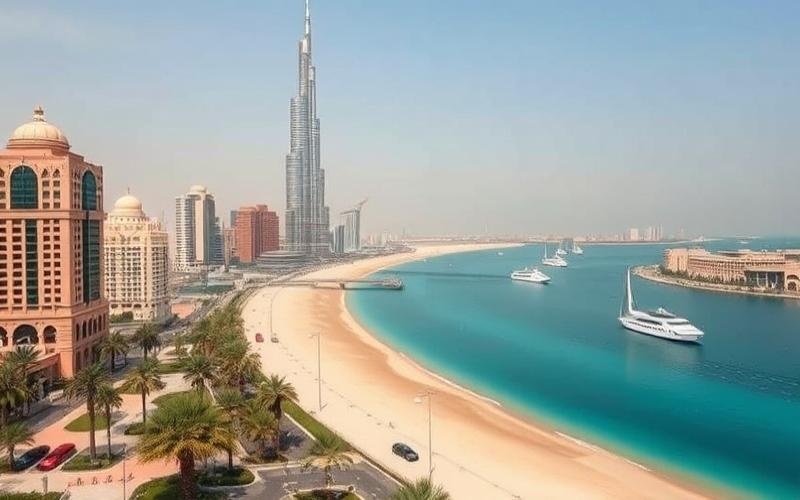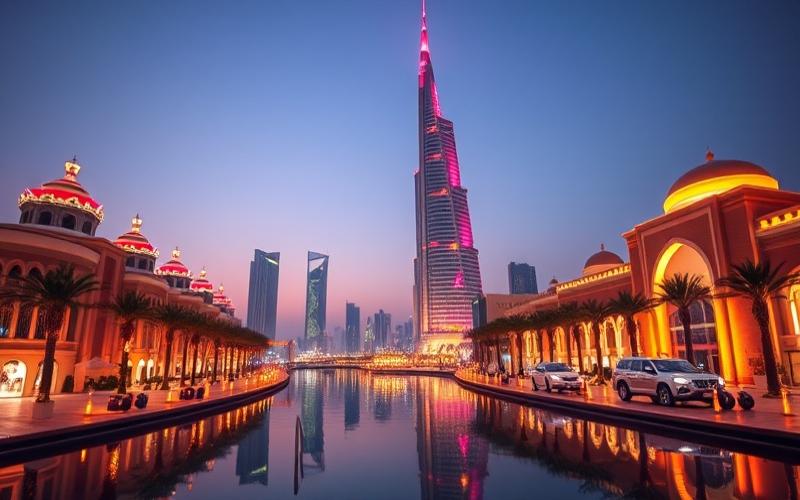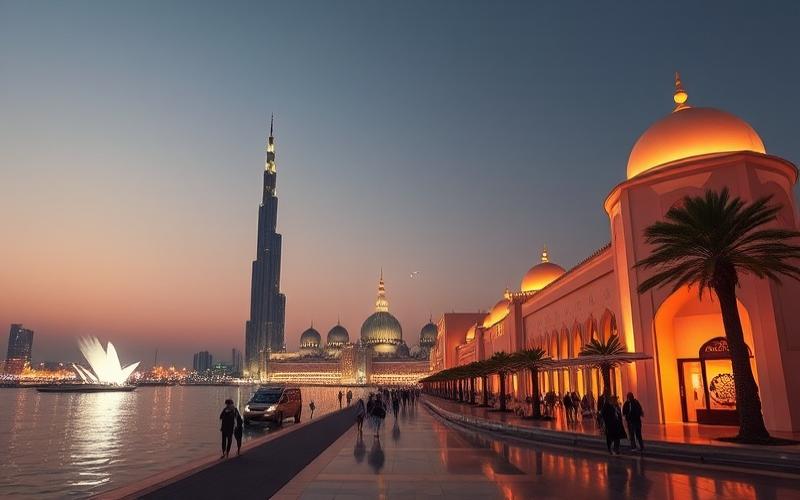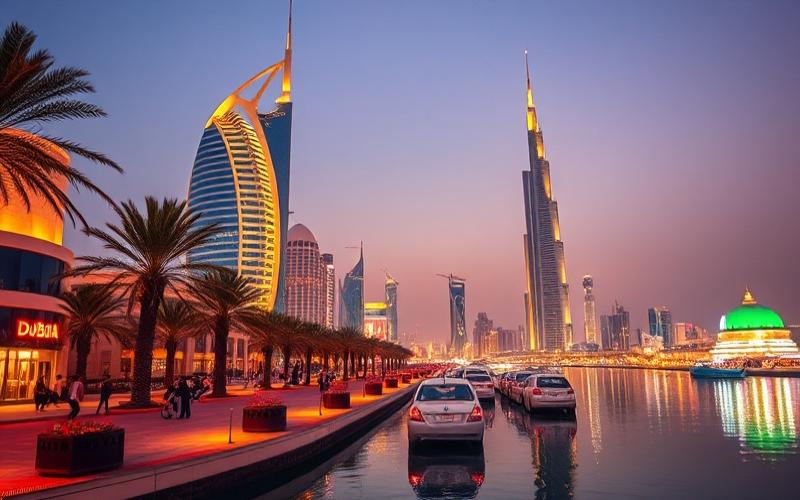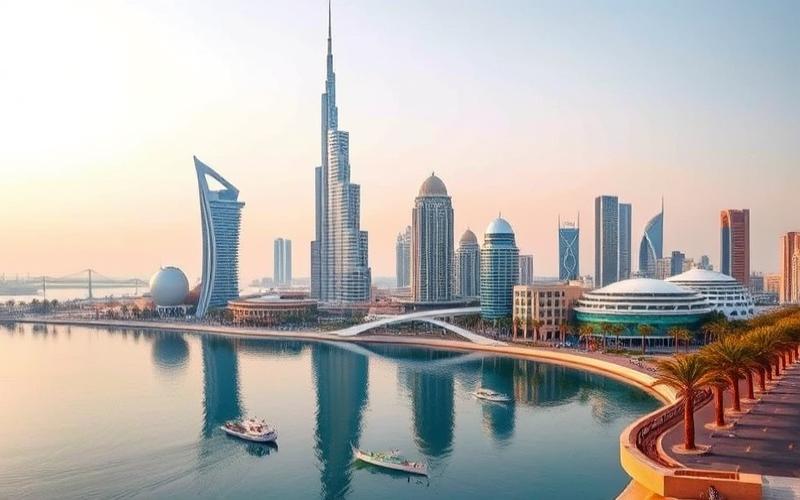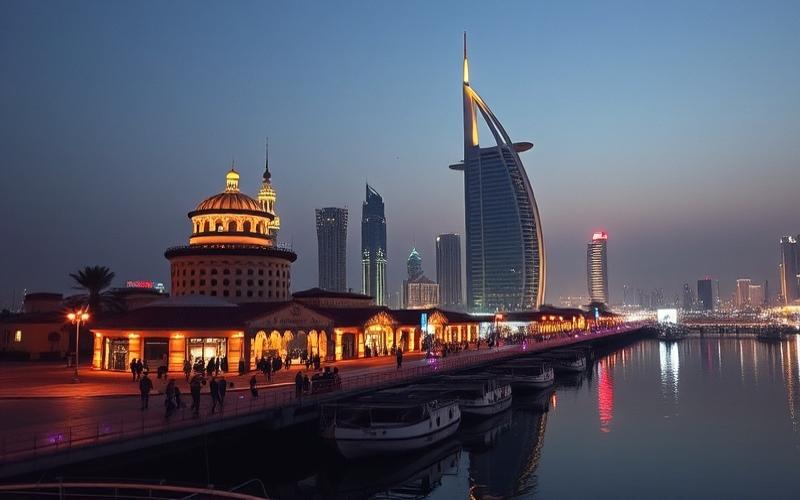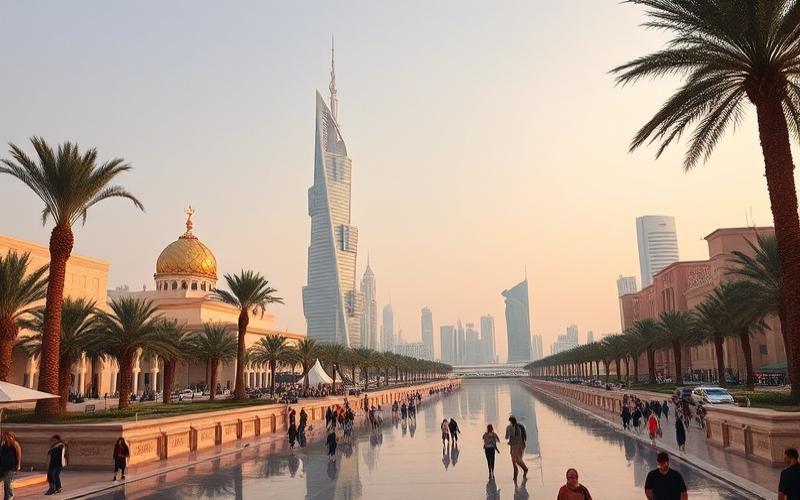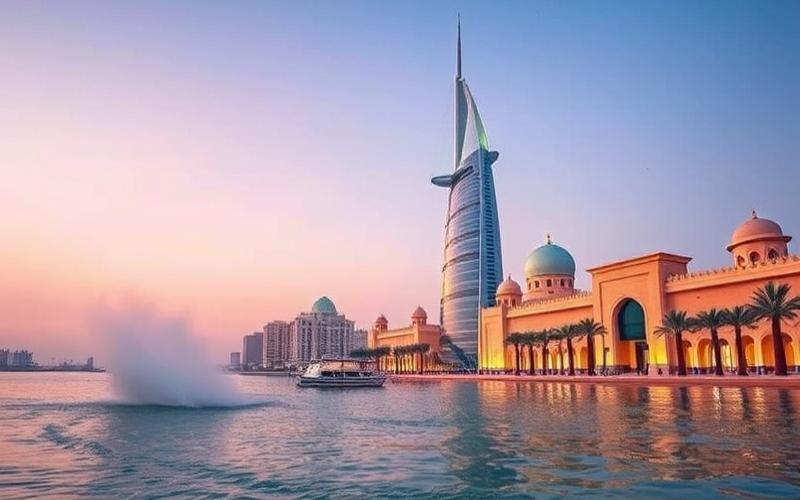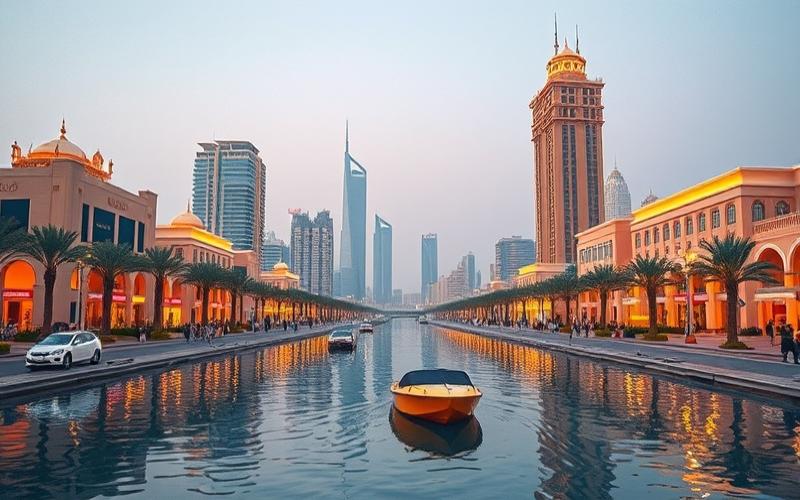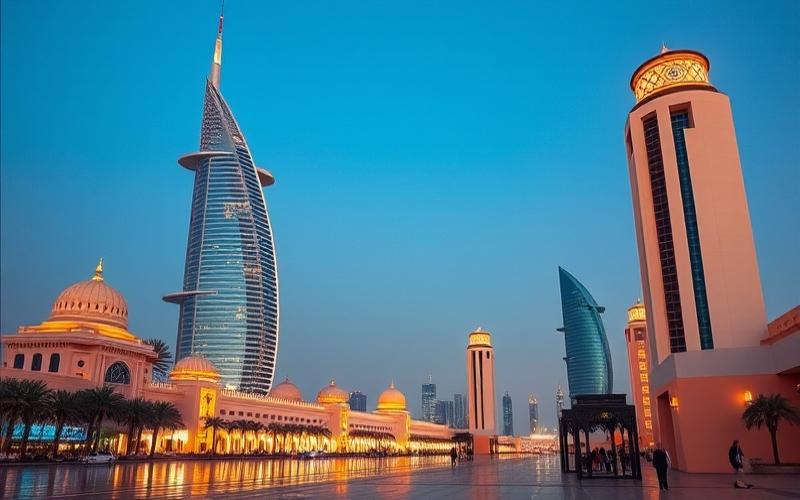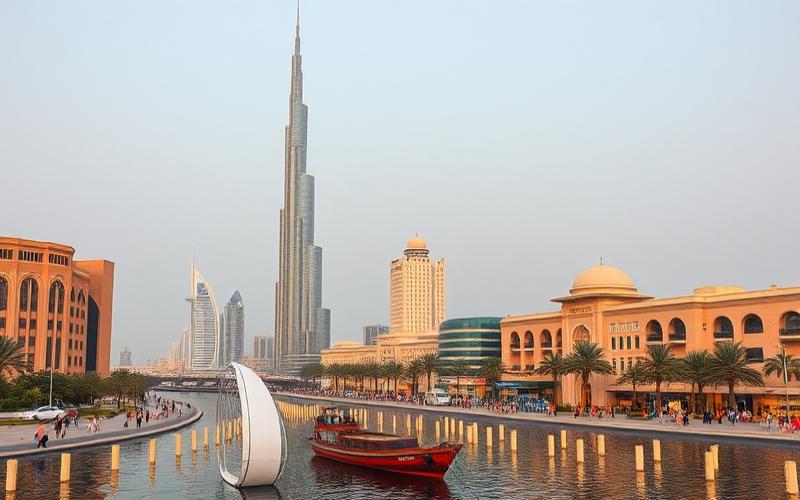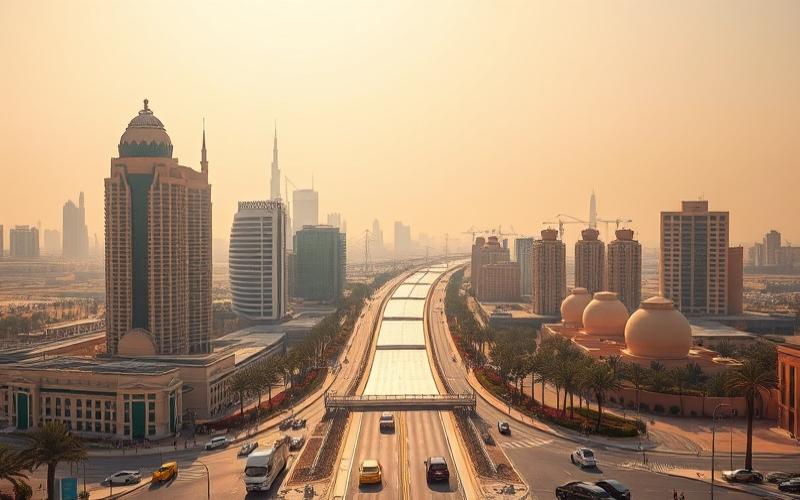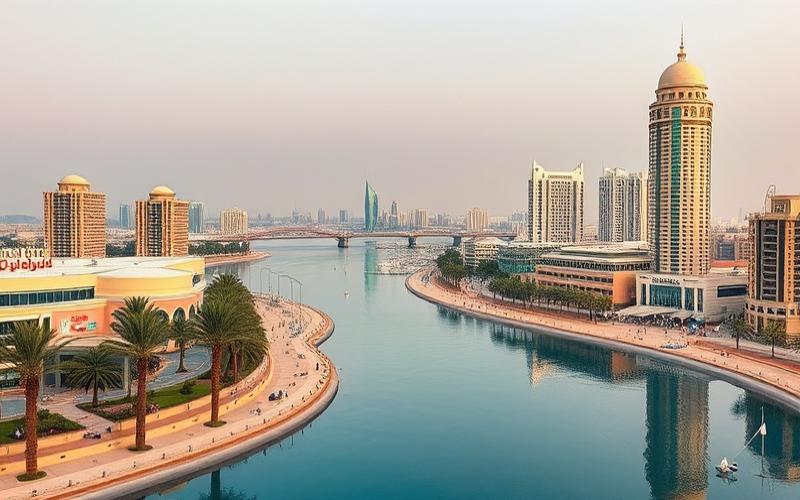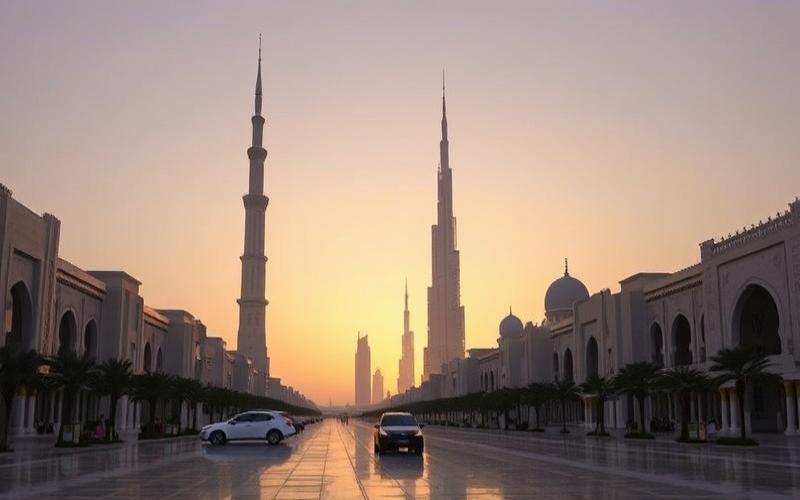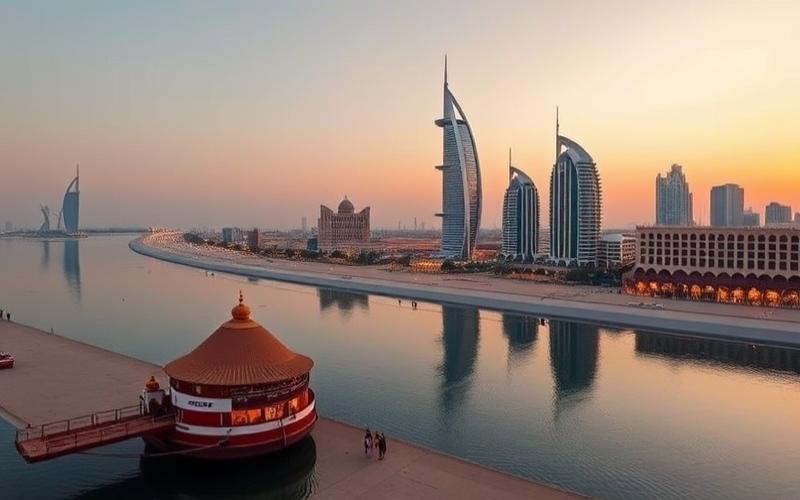
 Published on and written by Cyril Jarnias
Published on and written by Cyril Jarnias
Commercial Real Estate in Dubai: A Buzzing Market
Dubai, the jewel of the United Arab Emirates, continues to captivate investors worldwide with its economic dynamism and thriving real estate market. The year 2024 has been particularly remarkable, with an average 27.5% increase in residential values, demonstrating the sector’s vitality. This exceptional growth also extends to the commercial segment, offering enticing opportunities for savvy investors. In this article, we will explore in detail the facets of commercial real estate in Dubai, its advantages, its challenges, and the promising prospects it offers.
Diverse Assets for All Investor Profiles
Commercial real estate in Dubai encompasses a wide range of properties, each with its own characteristics and benefits. This diversity allows investors to find the type of asset that best matches their strategy and financial goals.
Offices: The Beating Heart of Dubai’s Economy
Office spaces constitute the backbone of Dubai’s commercial real estate market. Areas like Business Bay and DIFC (Dubai International Financial Centre) have become nerve centers for local and international businesses. These zones offer modern office buildings, equipped with the latest technologies and benefiting from excellent connectivity.
Warehouses: The Expanding Logistics Pillar
With its strategic positioning as a global logistics hub, Dubai is seeing growing demand for warehouses and industrial facilities. Areas like Jebel Ali offer interesting opportunities for investors interested in this segment. The growth of e-commerce and Dubai’s increasing importance in global supply chains support the value of these assets.
Coworking Spaces: A Response to Evolving Work Trends
The rise of flexible work and the influx of startups and freelancers in Dubai have stimulated demand for coworking spaces. These shared work environments offer flexibility appreciated by modern businesses and represent an interesting investment opportunity in a changing market.
Shopping Malls: At the Heart of the Dubai Experience
Dubai is renowned for its luxurious and innovative shopping malls. These complexes are not just shopping venues but true destinations offering entertainment, dining, and unique experiences. Investing in retail space within these malls can be particularly lucrative, given the tourist traffic and the high purchasing power of the local population.
Good to Know:
Commercial real estate in Dubai offers a diverse range of opportunities, from high-tech offices to strategic warehouses, trendy coworking spaces, and iconic shopping malls. This variety allows investors to precisely target the segment that best matches their investment strategy.
Attractive Profitability and Risk Management: The Winning Duo
Commercial real estate in Dubai stands out for its high profitability potential, while requiring a cautious approach to risk management.
Higher Rental Yields
One of the main attractions of commercial real estate in Dubai lies in its attractive rental yields. On average, commercial properties offer a higher annual return than residential real estate. This performance is explained notably by a higher tenant density and increased rental stability. Commercial leases, often signed for longer periods, guarantee a stable source of income for investors.
Long-Term Appreciation
Beyond rental income, commercial real estate in Dubai presents interesting long-term appreciation potential. The sustained economic growth of the United Arab Emirates, with a significant increase in GDP in recent years, stimulates demand for commercial spaces and strengthens the capital gains potential of real estate assets.
Risk Management: A Necessary Approach
Despite these attractive prospects, investing in commercial real estate in Dubai requires rigorous risk management. The main challenges to consider include:
- Market volatility: although generally growing, Dubai’s real estate market can experience fluctuations.
- Regulatory complexity: the laws governing commercial real estate, including free zone regulations, can be complex and require a good understanding.
- Management costs: managing a commercial property is generally more demanding and costly than managing a residential property.
Risk Mitigation Strategies
To maximize the chances of success, savvy investors adopt several strategies:
- Portfolio diversification: spreading investments across different types of commercial properties and geographic areas.
- Thorough due diligence: conducting in-depth market research and detailed analysis of each investment opportunity.
- Partnership with local experts: surrounding oneself with professionals well-versed in the Dubai market to navigate regulatory and operational complexities.
Good to Know:
Commercial real estate in Dubai offers potentially high returns but requires prudent risk management. A balanced approach, combining due diligence, diversification, and local expertise, is essential to maximize success chances in this dynamic market.
Emerging Trends: Shaping the Future of Commercial Real Estate
The commercial real estate market in Dubai is constantly evolving, influenced by global trends and innovative local initiatives.
The Rise of Smart Buildings
Dubai is positioning itself at the forefront of technological innovation in commercial real estate. Smart buildings, integrating automated management systems, energy-saving solutions, and IoT (Internet of Things) technologies, are gaining popularity. These properties not only offer increased operational efficiency but also meet growing demands for sustainability and occupant comfort.
Flexibility at the Heart of New Concepts
The demand for flexible workspaces continues to grow in Dubai. Beyond traditional coworking spaces, we are seeing the emergence of hybrid concepts blending private offices, shared spaces, and networking areas. This trend reflects the evolution of work modes and offers new opportunities for investors capable of adapting their properties to these changing needs.
Focus on Sustainability
Dubai is resolutely committed to a sustainable development approach, which is reflected in the commercial real estate sector. Green buildings, certified LEED or compliant with local sustainability standards, are gaining attractiveness. This trend is supported by government initiatives aimed at reducing the city’s carbon footprint and promoting responsible construction practices.
Integration of Living and Working Spaces
The concept of mixed-use developments is gaining momentum in Dubai. These projects, combining commercial, residential, and leisure spaces, meet a growing demand for integrated urban environments. For investors, these developments offer the opportunity to diversify their portfolio within a single project and benefit from synergies between different types of assets.
Adaptation to E-commerce
The rise of e-commerce is influencing the design and use of commercial spaces in Dubai. There is a trend towards transforming traditional shopping malls into experiential destinations, blending retail, entertainment, and services. Meanwhile, demand for urban warehouses and next-generation distribution centers is increasing, offering new investment opportunities in the logistics sector.
Good to Know:
Commercial real estate in Dubai is rapidly evolving, influenced by trends such as smart technology, space flexibility, sustainability, and the integration of urban functions. Investors who anticipate and adapt to these changes will be best positioned to seize emerging opportunities in this dynamic market.
Strategic Areas: Where to Invest to Maximize Potential
The choice of location is crucial in commercial real estate investment in Dubai. Certain areas stand out for their attractiveness and growth potential.
Business Bay: The Business Heart
Business Bay has established itself as Dubai’s premier business district. This area offers a dynamic mix of modern offices, commercial spaces, and high-end residences. Investors are attracted by its proximity to downtown Dubai and its state-of-the-art infrastructure. Commercial properties in Business Bay benefit from strong demand, both from local and international businesses.
Dubai International Financial Centre (DIFC): Finance in the Spotlight
DIFC is a free zone specialized in financial services, offering a world-class regulatory environment. Commercial properties in this area, particularly offices and retail spaces, are highly sought after by financial institutions and professional service firms. Investing in DIFC can offer stable returns and long-term appreciation potential.
Dubai Marina: An Attractive Urban Lifestyle
Although primarily residential, Dubai Marina also offers interesting opportunities in commercial real estate. Retail spaces and offices in this area benefit from a constant flow of residents and tourists. Demand for coworking spaces and flexible offices is particularly strong in this dynamic and cosmopolitan neighborhood.
Jebel Ali: The Expanding Logistics Hub
Jebel Ali, with its world-class port and free zone, is a strategic location for investment in industrial and logistics real estate. The growing demand for modern warehouses and distribution centers makes this area an attractive option for investors interested in the booming logistics sector.
Dubai South: The Future of Commercial Real Estate
Dubai South, an ambitious development project around the new Al Maktoum International Airport, offers long-term investment opportunities. This area is set to become a major hub for aviation, logistics, and trade, with large-scale commercial real estate projects. Discerning investors can benefit from attractive entry prices and significant growth potential as the area develops.
Good to Know:
The choice of location is crucial to maximize the potential of a commercial real estate investment in Dubai. Areas like Business Bay, DIFC, Dubai Marina, Jebel Ali, and Dubai South each offer unique advantages and interesting growth prospects. An in-depth analysis of each area, based on specific investment objectives, is essential for making an informed decision.
Investing in commercial real estate in Dubai requires a thorough understanding of the local legal and tax framework, which presents advantageous particularities but also complexities to master.
An Attractive Tax Environment
One of Dubai’s main assets for international investors is its favorable tax regime. The key points to remember are:
- No income tax for individuals and businesses in most sectors
- No capital gains tax on real estate
- No annual property tax, although service charges are typically applied
This advantageous tax structure allows investors to maximize their returns, making commercial real estate in Dubai particularly attractive financially.
Free Zone Regulations
Dubai’s free zones play a crucial role in the attractiveness of its commercial real estate market. Each free zone has its own regulations, often offering specific benefits such as:
- The possibility for foreigners to hold 100% ownership of their company
- Simplified procedures for obtaining business licenses
- Customs duty exemptions
However, it is essential to understand the specific rules of each free zone, as they can vary in terms of permitted activities and allowed ownership structures.
Acquisition and Ownership Process
The process of acquiring a commercial property in Dubai involves several key steps:
- Obtaining an investor number from the Dubai Land Department
- Thorough due diligence on the property and the seller
- Signing a sales contract (MOU – Memorandum of Understanding)
- Property transfer and registration with the competent authorities
It is highly recommended to engage a local specialized lawyer to navigate this process and ensure compliance with all legal requirements.
Considerations for Foreign Investors
Although Dubai has significantly liberalized its real estate market for foreign investors, some restrictions remain:
- In certain areas, ownership may be limited to long-term leasehold rather than freehold
- Some types of properties or zones may be reserved for UAE or GCC nationals
It is crucial to check the specific restrictions for each area and property type before investing.
Recent Regulatory Developments
Dubai’s regulatory framework is constantly evolving to enhance the attractiveness of the real estate market. Recent initiatives include:
- The introduction of long-term residency visas for real estate investors
- Simplification of procedures for obtaining business licenses
- Strengthening regulations on transparency and investor protection
These developments demonstrate Dubai’s commitment to maintaining an investor-friendly environment while strengthening the stability and maturity of the market.
Good to Know:
Dubai’s legal and tax framework offers significant benefits for commercial real estate investors, including an attractive tax regime and favorable regulations in free zones. However, the system’s complexity requires thorough understanding and often the assistance of local experts to effectively navigate this environment and maximize opportunities while minimizing risks.
Commercial real estate in Dubai presents remarkable potential for savvy investors. With its sustained economic growth, world-class infrastructure, and favorable regulatory framework, the city offers fertile ground for lucrative investments. From the high-tech offices of Business Bay to the strategic warehouses of Jebel Ali, and the innovative retail spaces of Dubai Marina, the opportunities are varied and promising.
However, like any dynamic market, commercial real estate in Dubai requires a strategic and well-informed approach. The key to success lies in a thorough understanding of market trends, rigorous due diligence, and proactive risk management. Investors who can navigate regulatory complexity, anticipate market developments, and adapt to new trends will be best positioned to benefit from this buzzing market.
As Dubai continues to reinvent itself and strengthen its position as a global hub for business and innovation, the city’s commercial real estate promises to remain a dynamic and attractive sector for years to come. For those ready to seize these opportunities with an informed and strategic approach, Dubai’s commercial real estate market offers exceptional growth and return potential.
Disclaimer: The information provided on this website is for informational purposes only and does not constitute financial, legal, or professional advice. We encourage you to consult qualified experts before making any investment, real estate, or expatriation decisions. Although we strive to maintain up-to-date and accurate information, we do not guarantee the completeness, accuracy, or timeliness of the proposed content. As investment and expatriation involve risks, we disclaim any liability for potential losses or damages arising from the use of this site. Your use of this site confirms your acceptance of these terms and your understanding of the associated risks.

